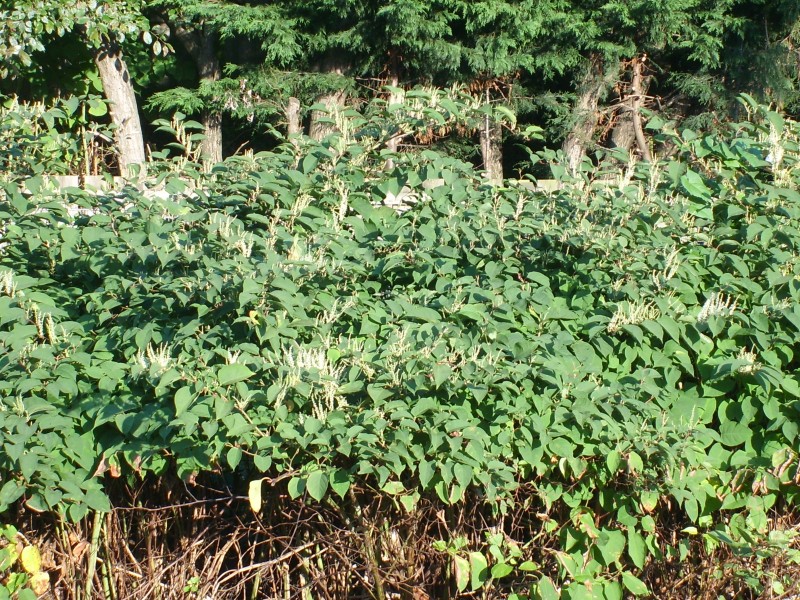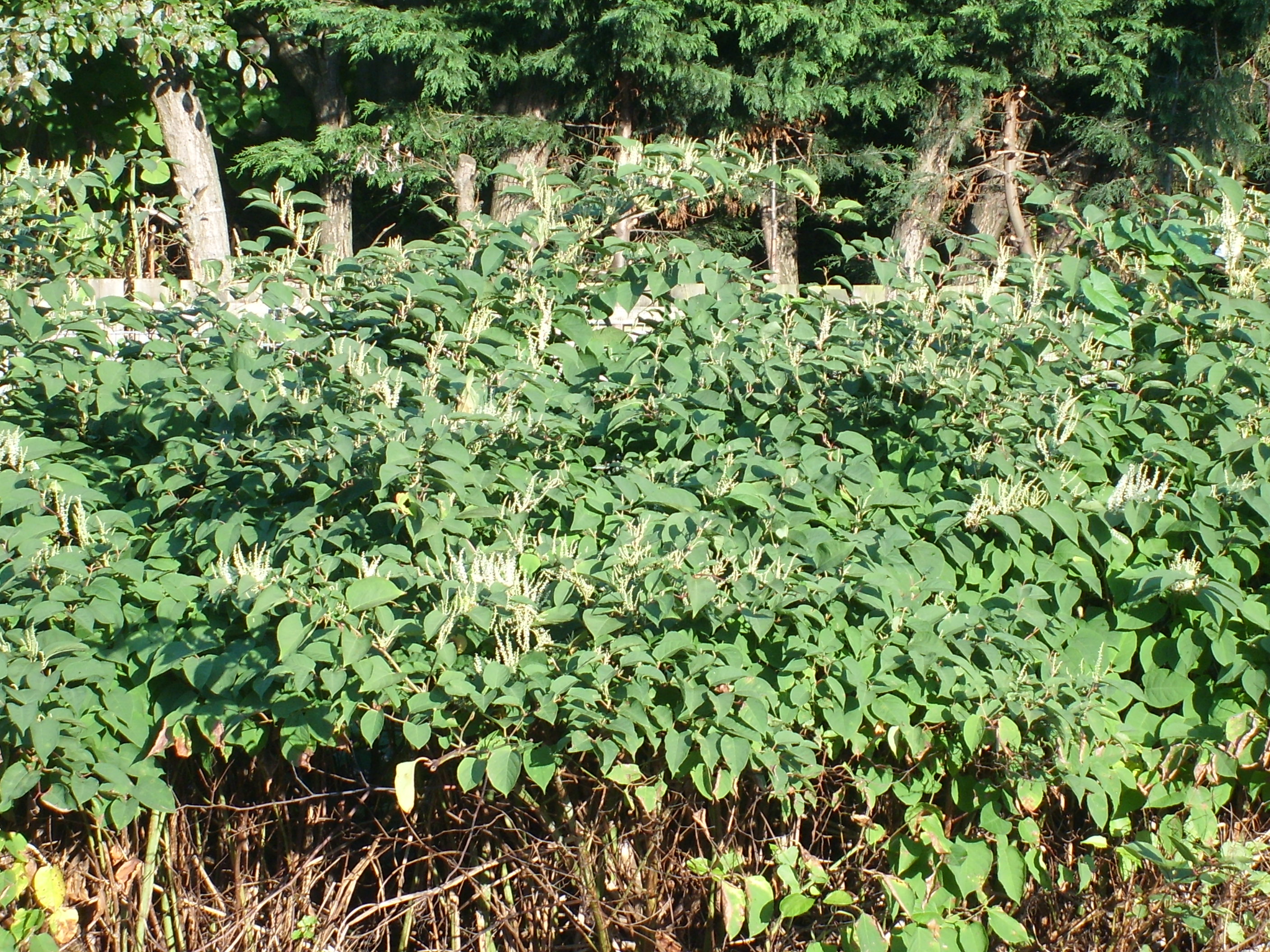
Knotweed has gained a fearsome reputation as a highly destructive weed that can threaten the value of any property within its reach. The weed is rarely out of the news and causes a headache for landlords and tenants alike. The Environment Agency calls knotweed “indisputably the UK's most aggressive, destructive and invasive plant.” So how can you stop this formidable weed from wreaking havoc on your property? Let’s start by looking at what knotweed is.

What is knotweed?
Knotweed is native to Japan, China, and Korea, and was introduced into the UK in the eighteenth century. It was originally prized for its decorative qualities but people soon noticed that this beautiful plant had a number of unpleasant qualities. It’s tall, fast growing, and so robust that it’s capable of breaking through concrete, posing a real threat to the foundations, wiring, and plumbing of properties. It lies dormant in winter months but then grows aggressively from May to October. The roots go so deep that they are nearly impossible to remove by hand, and the weed will quickly return if even a tiny fragment is left behind.
An outbreak of knotweed during the London 2012 Olympics cost a massive £70m when over 10 acres of the proposed sites became infected. While this is an extreme example, the annual cost to the UK of controlling and eradicating this invasive weed is between £160m and £200m - (According to the FT Group).
The risks of knotweed
It tends to be the sale of property that prompts action to treat the weed as it’s virtually impossible to get a mortgage on a property with knotweed present. It makes sense for landlords to deal with the problem upon discovery, and not wait for it to delay a property sale.
In some cases you can be forced to clear infested land until the area has been treated. This means that you would be losing money on rent, and may have to pay costly treatment and repairs fees. If you allow the knotweed to spread, then you can even face criminal proceedings under either the Wildlife and Countryside Act 1981, or the Environmental Protection Act 1990 “duty of care.” It is therefore important that landlords don’t rely on tenants to spot and report knotweed.
How to identify knotweed
New research has revealed that fewer than one fifth (19%) of Brits who say they are aware of knotweed can correctly identify the weed. Failure to identify and treat Japanese knotweed as soon as it appears will result in it quickly spreading and becoming established. This could make your property unlettable, and knock tens of thousands of pounds off its value. Landlords need to make sure that they, their tenants, and all their contractors can recognise it and take appropriate action. Here is what you should look out for:
- During spring, red/purple shoots appear from pink buds in the ground and grow rapidly into bamboo-like canes that develop green spade-shaped leaves.
- By early summer the knotweed stems are hollow with purple speckles and can reach up to 3 metres in height. The leaves alternate on each side of the stem producing a zigzag pattern.
- During summer/early autumn creamy-white coloured flowers are produced in loose clusters.
Garden forums offer plenty of useful information regarding knotweed. Advice on Mowers stresses the importance of distinguishing between knotweed and a similar-looking plant called bindweed. This plant can be deadly to other plants, although it is much easier to treat than knotweed, as you can simply chop away the bulk of the plant before destroying the roots with boiling water.
How to get rid of knotweed
Solicitors advise that you should seek specialist advice immediately from companies who are accredited in the treatment and disposal of knotweed. Simply digging it out is unlikely to get rid of it for good, and more importantly, digging it out could be a criminal offence.
As it is so invasive, knotweed is governed by regulations that control how the weed is disposed of. You cannot simply put it in your normal household waste or recycling bin, as this is illegal. Axa Insurance explain how you can be fined up £2,500 (companies can be fined up to £20,000), receive an anti-social behaviour order or even receive a prison sentence in some instances, for breaking these rules.
Final thought
There is no denying that knotweed is an invasive and destructive plant, that causes serious issues for both tenants and landlords. However, being able to quickly identify and treat it, will significantly lower the chances of it causing physical damage to your property, or affecting your chances of letting or selling. Make sure that you and your tenants are checking the property regularly, know what to look for, and seek professional advice if you suspect that knotweed is present.
Written for CGT by Leanne White
